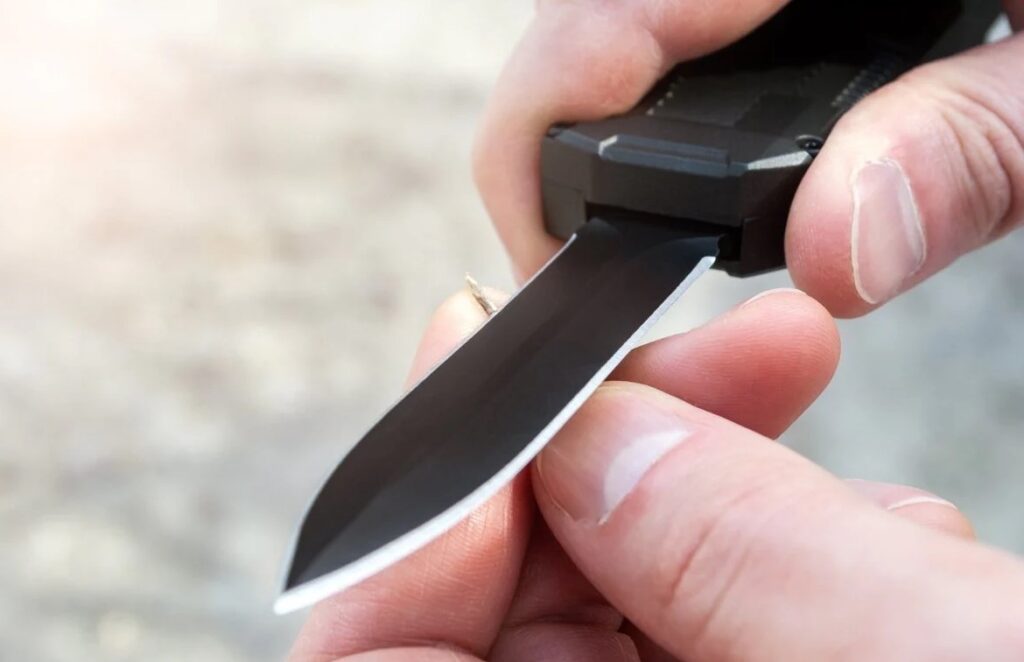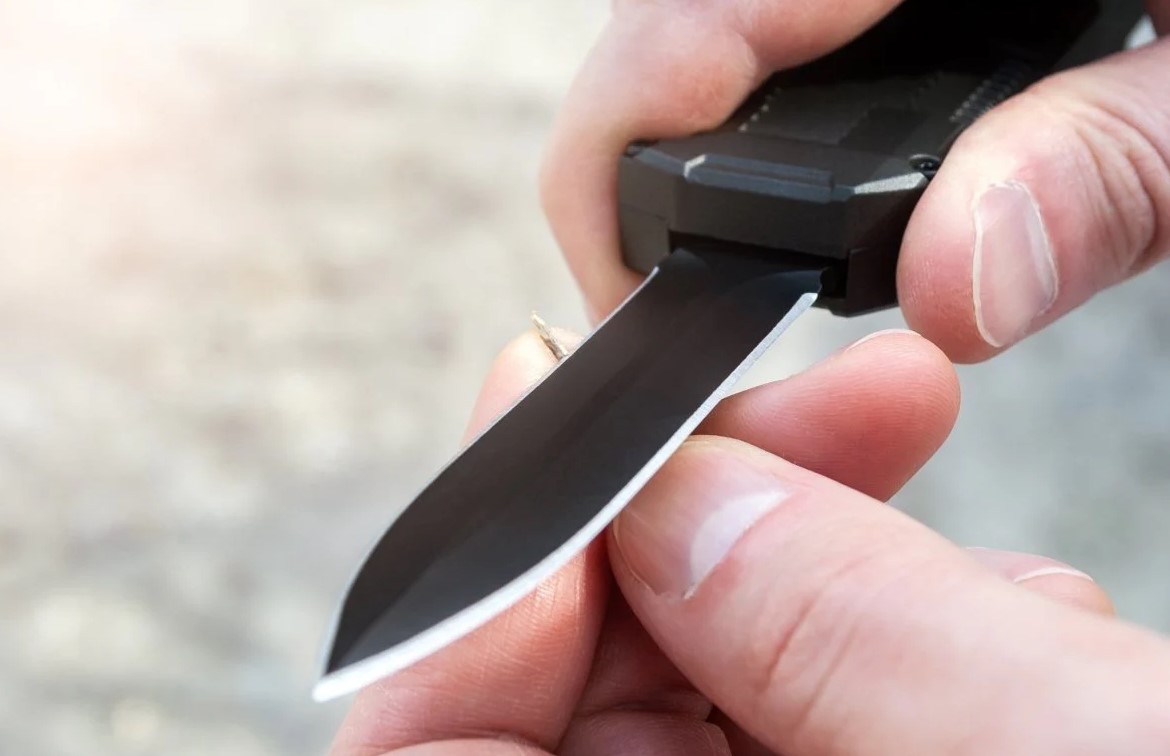
Are Switchblades Illegal in America? A Comprehensive Legal Guide
Navigating the legal landscape surrounding knives can be tricky, especially when it comes to switchblades. The question, “Are switchblades illegal in America?” isn’t a simple yes or no. Federal and state laws vary significantly, creating a complex web of regulations. This article provides a comprehensive, expert-driven guide to understanding these laws, ensuring you’re informed and compliant. We’ll delve into federal regulations, examine state-by-state variations, and answer frequently asked questions, offering clarity and actionable insights. Our goal is to provide you with the most up-to-date and reliable information available, drawing upon legal precedents and expert analysis to give you a complete picture of switchblade legality in the United States.
Understanding Federal Switchblade Laws
The federal government regulates switchblades through the Interstate Commerce Act, specifically Section 1241-1244, often referred to as the Federal Switchblade Act. This act primarily focuses on the *interstate* sale and transportation of switchblades. It prohibits the introduction, manufacture for introduction, transportation, and distribution of switchblades in interstate commerce. This means:
* **Interstate Sale Prohibition:** Selling switchblades across state lines is generally illegal.
* **Import Restrictions:** Importing switchblades from foreign countries is typically prohibited.
* **Exceptions:** There are exceptions for certain entities, such as law enforcement and the military, under specific circumstances.
The act defines a switchblade as any knife having a blade which opens automatically:
* **(1)** by hand pressure applied to a button or other device in the handle of the knife, or
* **(2)** by operation of inertia, gravity, or both.
This definition is crucial because it determines which knives fall under federal regulation. It’s important to note that the federal law doesn’t explicitly prohibit *possession* of switchblades; it primarily targets their sale and transportation across state lines.
The Federal Switchblade Act: Key Provisions
* **Commerce Clause:** The Federal Switchblade Act relies on the Commerce Clause of the U.S. Constitution, which grants Congress the power to regulate interstate commerce.
* **Penalties:** Violations of the Federal Switchblade Act can result in significant fines and imprisonment.
* **Enforcement:** Federal agencies, such as Customs and Border Protection (CBP) and the Bureau of Alcohol, Tobacco, Firearms and Explosives (ATF), are responsible for enforcing the act.
Navigating the Nuances of Federal Law
It’s crucial to understand that federal law only applies to interstate commerce. Therefore, intrastate activities (those occurring entirely within a single state) are primarily governed by state laws. This is where the complexity truly arises, as state laws vary widely.
State-by-State Switchblade Laws: A Patchwork of Regulations
While federal law addresses interstate commerce, state laws govern the possession, sale, and carry of switchblades within their respective borders. These laws range from outright bans to permissive regulations. Here’s a look at some examples:
* **States with Strict Bans:** Some states, like Delaware and Hawaii, have strict bans on switchblades, prohibiting their possession, sale, and carry.
* **States with Restrictions:** Many states have restrictions on switchblades, such as limitations on blade length or concealed carry prohibitions. For instance, a state might allow possession but prohibit carrying a switchblade concealed.
* **States with Permissive Laws:** A few states have relatively permissive laws, treating switchblades similarly to other knives. However, even in these states, local ordinances might impose restrictions.
Examples of State Laws
* **California:** California Penal Code Section 21510 PC makes it illegal to possess, sell, or manufacture switchblades with a blade two or more inches in length. This illustrates a state-level restriction based on blade length.
* **Texas:** Texas Penal Code Section 46.01 defines a switchblade as an illegal knife, but there are exceptions for certain activities, such as hunting or fishing.
* **New York:** New York Penal Law Section 265.00 defines a switchblade as a weapon and restricts its possession and sale. However, there have been legal challenges and changes to the law over time.
Checking Your Local Laws
Given the variability of state and local laws, it’s imperative to check the specific regulations in your jurisdiction. Resources such as:
* **State Statutes:** Consult the official state penal codes or statutes.
* **Local Ordinances:** Check city and county ordinances for any additional restrictions.
* **Legal Professionals:** Seek advice from a qualified attorney familiar with knife laws in your area.
Ignoring local laws can lead to serious legal consequences, including fines, arrest, and a criminal record.
Switchblades vs. Automatic Knives: Clearing Up the Confusion
Often, the terms “switchblade” and “automatic knife” are used interchangeably, but it’s important to understand the legal distinction. Generally, a switchblade is a type of automatic knife, but the legal definition can vary. The key characteristic of a switchblade is that the blade opens automatically by hand pressure applied to a button or other device in the handle, or by operation of inertia, gravity, or both.
The Importance of Definition
The specific legal definition of a switchblade is crucial because it determines whether a particular knife is subject to federal or state restrictions. Some knives that appear to be switchblades might not meet the legal definition, and therefore might not be subject to the same regulations.
For instance, assisted-opening knives, which require manual force to initiate the blade opening, are often *not* considered switchblades under the law. These knives typically have a spring that assists in opening the blade once the user has manually moved it a certain distance.
Case Law and Legal Interpretations
Court cases and legal interpretations play a significant role in defining what constitutes a switchblade. Judges and juries often consider the design and function of the knife to determine whether it meets the legal definition. Therefore, it’s essential to stay informed about relevant case law in your jurisdiction.
Exceptions to Switchblade Laws: Law Enforcement, Military, and Collectors
While switchblades are generally restricted, there are often exceptions for certain individuals and circumstances. These exceptions typically include:
* **Law Enforcement:** Law enforcement officers are often exempt from switchblade laws, as they may need to carry these knives for official duties.
* **Military Personnel:** Military personnel may also be exempt, particularly when carrying switchblades as part of their equipment.
* **Collectors:** Some states have exceptions for collectors who possess switchblades as part of a collection, provided they are not used for illegal purposes.
Specific Requirements for Exceptions
To qualify for an exception, individuals typically need to meet specific requirements, such as:
* **Official Identification:** Law enforcement and military personnel may need to carry official identification to prove their status.
* **Permits or Licenses:** Collectors may need to obtain permits or licenses to possess switchblades legally.
* **Compliance with Regulations:** All individuals must comply with any additional regulations imposed by federal or state law.
Consequences of Violating Switchblade Laws: Penalties and Legal Ramifications
Violating switchblade laws can result in serious legal consequences, including:
* **Fines:** Fines can range from a few hundred dollars to several thousand dollars, depending on the severity of the offense and the jurisdiction.
* **Imprisonment:** Imprisonment is a possibility, particularly for repeat offenders or those involved in the illegal sale or distribution of switchblades.
* **Criminal Record:** A conviction for violating switchblade laws can result in a criminal record, which can have long-term consequences for employment, housing, and other opportunities.
Civil Liabilities
In addition to criminal penalties, individuals who violate switchblade laws may also face civil liabilities. For example, if someone is injured by a switchblade, the possessor could be sued for damages.
Importance of Legal Counsel
If you are facing charges for violating switchblade laws, it’s crucial to seek legal counsel from a qualified attorney. An attorney can help you understand your rights, assess the strength of the case against you, and develop a defense strategy.
The Future of Switchblade Laws: Trends and Potential Changes
The legal landscape surrounding switchblades is constantly evolving. Here are some trends and potential changes to watch for:
* **Legal Challenges:** There have been ongoing legal challenges to switchblade laws, particularly those that are perceived as overly broad or vague.
* **Legislative Reforms:** Some states are considering legislative reforms to modernize their knife laws and align them with those of other states.
* **Technological Advancements:** Technological advancements in knife design may lead to new legal challenges and interpretations.
Staying Informed
To stay informed about the latest developments in switchblade laws, it’s essential to:
* **Monitor Legal News:** Follow legal news outlets and publications that cover knife laws.
* **Consult Legal Professionals:** Seek advice from attorneys who specialize in knife law.
* **Participate in Advocacy:** Support organizations that advocate for knife rights and responsible knife ownership.
Q&A: Your Burning Questions About Switchblade Legality Answered
Here are some frequently asked questions about switchblade legality:
**Q1: Is it legal to own a switchblade in the United States?**
A: Federal law restricts interstate sale and transportation, but state laws vary significantly. Some states ban possession, while others allow it with restrictions.
**Q2: Can I carry a switchblade concealed?**
A: Concealed carry of a switchblade is often prohibited, even in states where possession is legal. Check your local laws for specific regulations.
**Q3: Are assisted-opening knives considered switchblades?**
A: Generally, no. Assisted-opening knives require manual force to initiate the blade opening and are typically not classified as switchblades under the law.
**Q4: Can law enforcement officers carry switchblades?**
A: Yes, law enforcement officers are often exempt from switchblade laws, as they may need to carry these knives for official duties.
**Q5: What are the penalties for violating switchblade laws?**
A: Penalties can include fines, imprisonment, and a criminal record, depending on the severity of the offense and the jurisdiction.
**Q6: Are there any exceptions for collectors?**
A: Some states have exceptions for collectors who possess switchblades as part of a collection, provided they are not used for illegal purposes.
**Q7: How can I find out the specific switchblade laws in my state?**
A: Consult your state’s penal code or statutes, check local city and county ordinances, or seek advice from a qualified attorney.
**Q8: Does the Federal Switchblade Act apply to intrastate activities?**
A: No, the Federal Switchblade Act primarily focuses on interstate sale and transportation. Intrastate activities are governed by state laws.
**Q9: Can I import a switchblade from another country?**
A: Importing switchblades from foreign countries is generally prohibited under the Federal Switchblade Act.
**Q10: What should I do if I am charged with violating switchblade laws?**
A: Seek legal counsel from a qualified attorney who can help you understand your rights and develop a defense strategy.
Conclusion: Navigating the Complex World of Switchblade Legality
The legality of switchblades in America is a complex issue, shaped by federal and state laws. Understanding these laws is crucial for responsible knife ownership and avoiding legal trouble. Remember that federal law primarily targets interstate commerce, while state laws govern possession, sale, and carry within their borders. Given the variability of these laws, it’s essential to check the specific regulations in your jurisdiction and seek legal counsel if you have any questions or concerns. By staying informed and compliant, you can navigate the complex world of switchblade legality with confidence.
Share your experiences with switchblade laws in the comments below. Explore our advanced guide to knife laws for more in-depth information. Contact our experts for a consultation on understanding the laws in your specific location.

